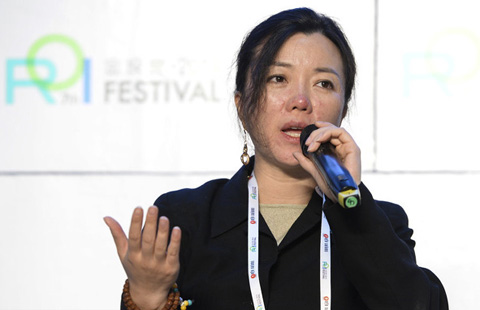Chinese companies doing business in Africa seeks more legal advice
By Chen Yingqun (China Daily) Updated: 2015-02-09 07:45
 |
|
A crew member of Sinopec in Sudan talks with local employees. As Chinese investments grow quickly in Africa, they need more legal services to regulate their business there. [Photo provided to China Daily] |
If an African country wanted a hydroelectric project, they approached China and maybe would get help with financing by China, engineers from China, and the workers would be from China. The Chinese team would fly to the location, build the housing, complete the project and go back to China.
Using that model, African countries would get the exact product they wanted, but it didn't bring with it much development for the local government and the local people, in terms of local contracts, giving workers more skills, or all the other development that flows out of the central project.
"The Chinese model was very efficient in terms of putting infrastructure into place, but didn't have this second-tier development effect the way that now the non-Chinese or European or the US model would," Stengel says.
Now more Chinese companies, especially big companies with a major presence in Africa, are beginning to run development projects in a way that is more consistent. They bring over expertise, manage the project, are involved in financing, and also use local contractors and engineers, so there's much more variety in how the deals are structured, and the deals are becoming more complicated.
Although business from Chinese companies is growing, that doesn't mean they are seeking out legal advice as often as their Western counterparts. Apart from serving big Chinese companies, Orrick's new practice also targets a large number of smaller or less sophisticated Chinese State-owned or private entities.
Because there's a lot of excitement about doing business in Africa, some Chinese companies may ignore or downplay the fact that their legal situation will be quite different in Africa and they need guidance in this different environment.
"Legal risks can be found in any major investment. The project may not work, expenses may be more than they expected, there may be failures in another party's transaction," he says.
There also are political risks. Legal systems in place in African countries aren't necessarily fully developed, and they may not have the tools they need to support these business activities. That will change over time, but there may be huge gaps between the legal system of the host country and the specifics when transactions are being done.
Because Africa includes 56 different countries, and every country has a different legal system, and some speak different languages, one of the things law firms can bring to clients is to pass on details about what is happening in each of those countries.
- Chinese companies take leading role in building airports in Africa
- Sino-Africa cooperation grows with mutual benefits
- Africans' fatter wallets shift trade focus with China
- Chinese hotel stays open in Liberia despite Ebola
- AU, China to cooperate on infrastructure, industrialization
- Sino-African ties look bright as trade heads toward $200b
- Chinese container vessel arrives in Myanmar
- China warns of challenges for global economy in 2015
- Porsche to recall 14,571 cars in China
- Chinese companies take leading role in building airports in Africa
- John Naisbitt says China is 'The game-changer'
- Electric car share project to shake up tradtional market
- Infiniti lays foundations for ambitious local plans
- Daimler AG to strengthen R&D in China

















